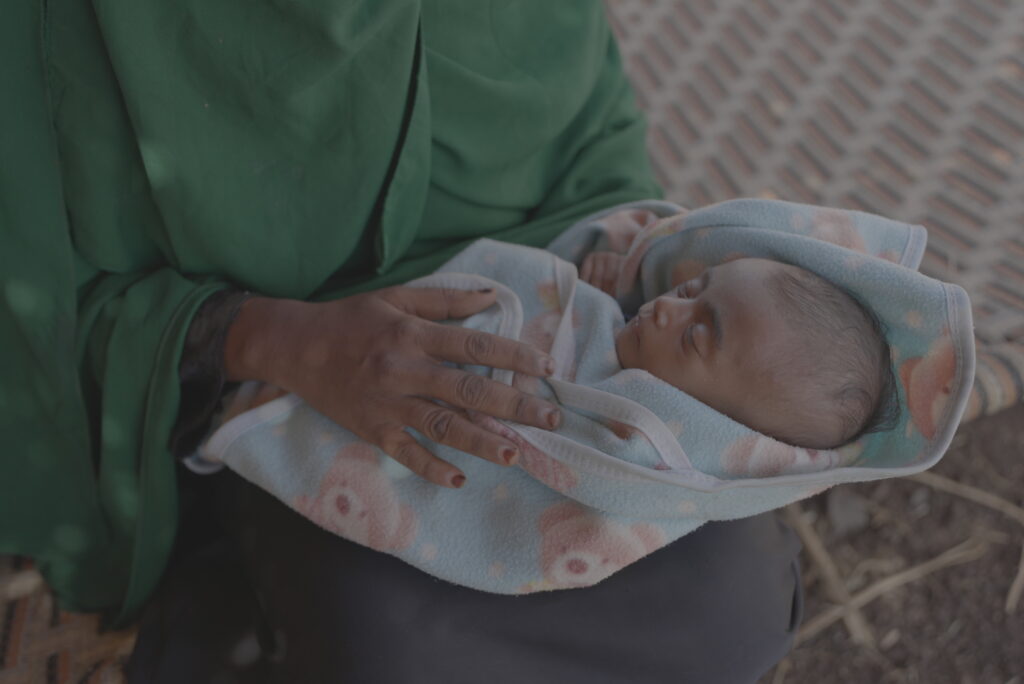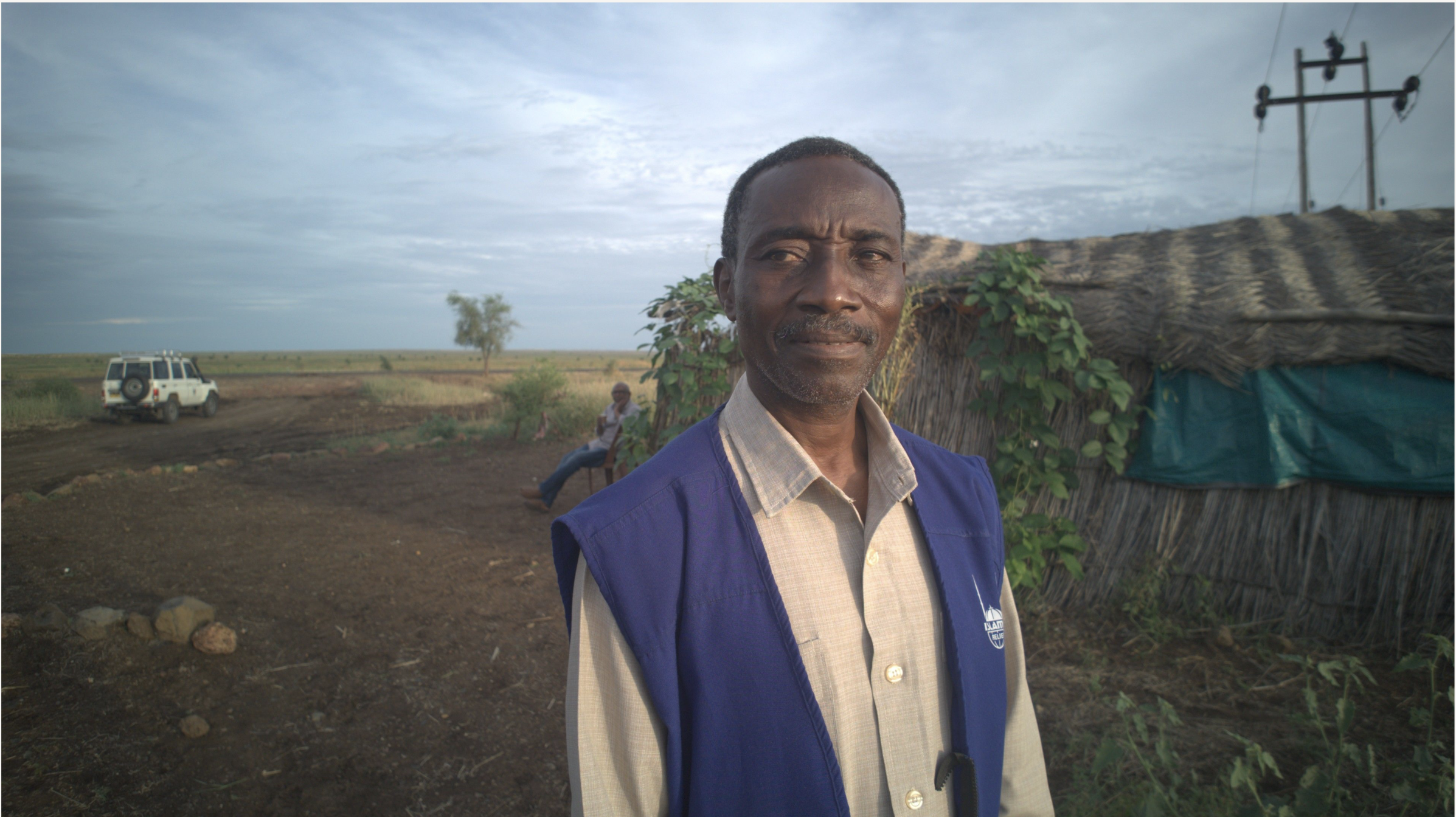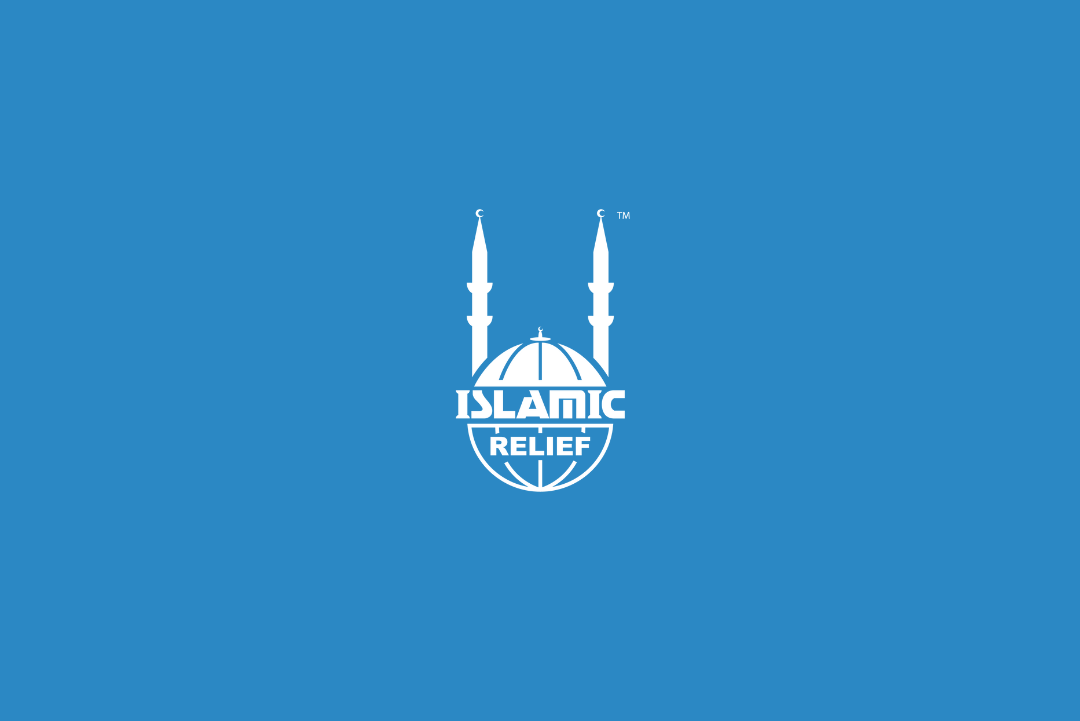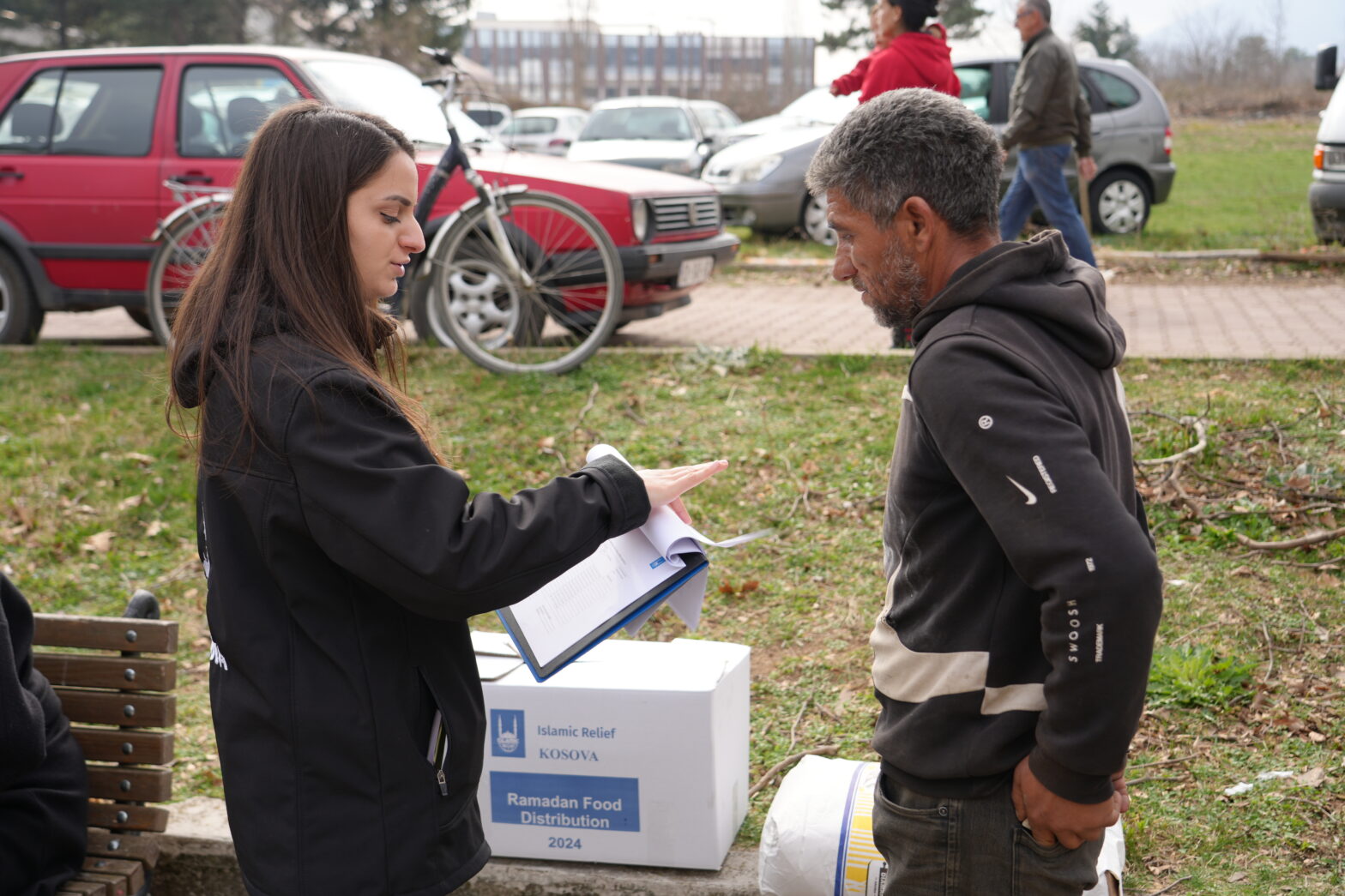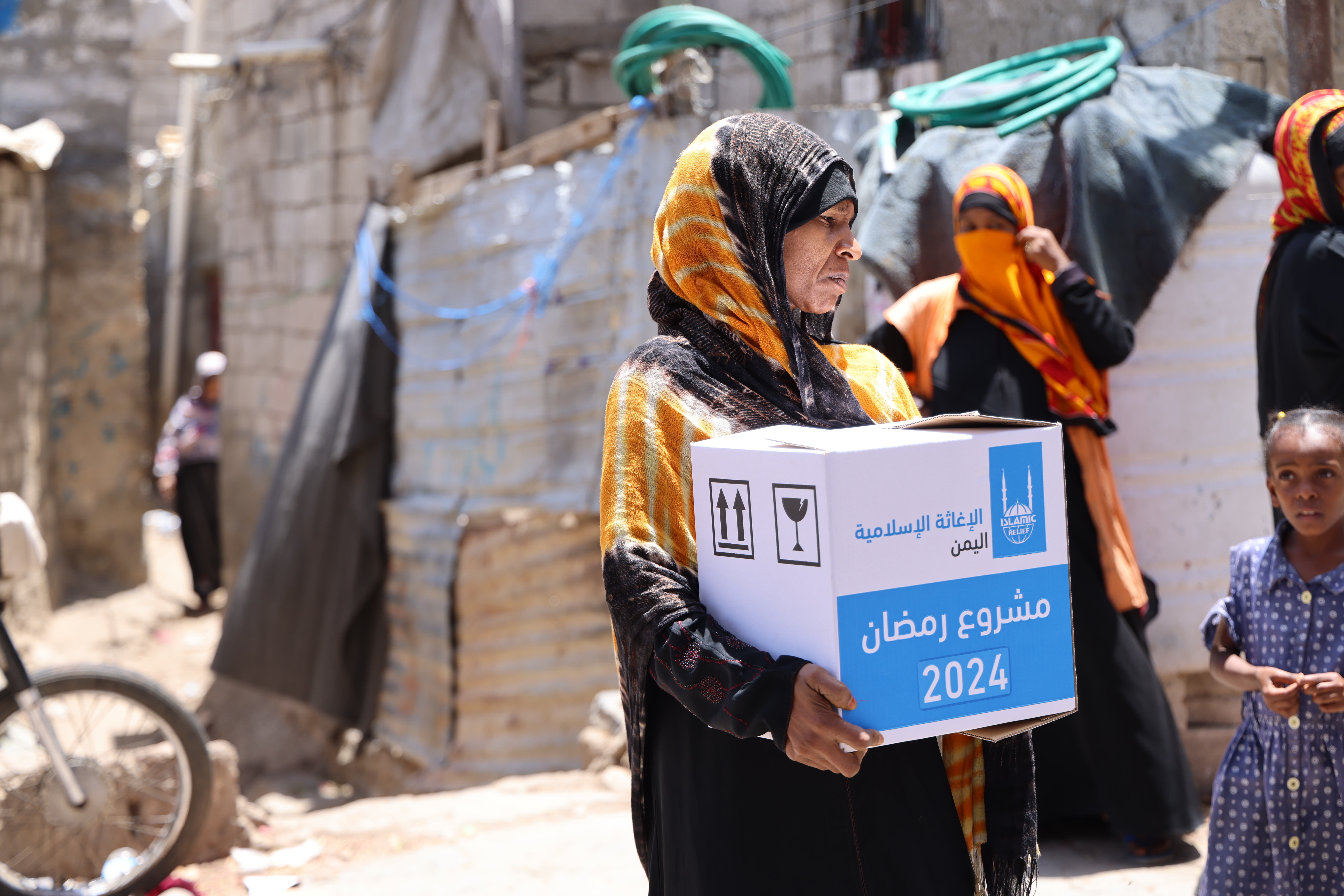In April 2023, war erupted in Sudan, tearing apart lives, displacing millions, and leaving a trail of devastation. For Mubarak Malik Abu Baker Mohammed, an Islamic Relief staff member, the conflict has been a relentless cycle of displacement, danger, and fear, but also of unwavering humanitarian commitment.
His story is not just his own. It mirrors the suffering of millions of Sudanese civilians caught in the crossfire of a brutal war – a war that has even claimed the lives of those who dedicated themselves to helping others.
A life uprooted by war
Mubarak joined Islamic Relief Worldwide during Ramadan 2023, just days before the conflict began. Stationed in Dilling, he had barely settled into his role when violence erupted.
“At the end of Ramadan, the war started,” he recalls.
What followed was a series of forced relocations – first to El Obeid, then Sennar, then Gedaref, and finally to Blue Nile State.
“I have moved to almost all Islamic Relief offices except Port Sudan,” he says.
Each move was a desperate escape from advancing militias, looters, and gunmen. Roads were lined with armed checkpoints; towns were besieged. In Sennar, the Islamic Relief office itself became a target.
“The road from El Obeid to Sennar was full of checkpoints and robberies,” Mubarak remembers. “My own laptop and belongings were robbed there.”
Yet, even in the face of personal loss, he acknowledges a painful truth:
“When you see how others suffered, yours looks normal. When you lose your belongings, you will find others who lost everything.”
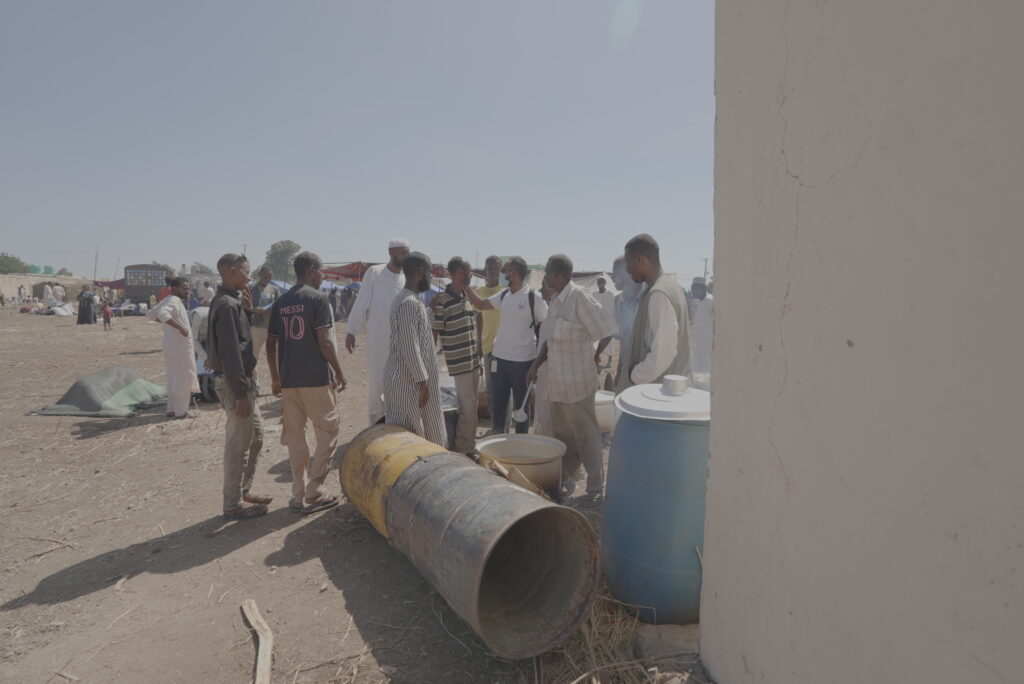
The death of a hero
The war has not only displaced millions, but also killed humanitarian workers, volunteers, and innocent civilians. Among them was Izzeldin Mohamed Juma, a beloved member of the Islamic Relief family.
At 49 years old, Izzeldin had dedicated his entire life to serving others. For over 30 years, he worked with Islamic Relief, first as a security guard and later as a receptionist, always ensuring the safety and well-being of staff and the people we serve.
On 11 March 2025, armed men attacked and looted his home in Jebel Aulia, Khartoum. Izzeldin was killed while trying to protect his family.
His death is a devastating loss, not just for Islamic Relief, but for the countless people he helped over 3 decades of service. It is a chilling reminder of the dangers facing humanitarian workers and ordinary families every day in Sudan.
“This is the fear we all live with,” says Mubarak. “Every day, we wonder if we will make it home. Every day, we hear of another colleague, another friend, who has been killed or displaced. But we keep working because the people need us.”
A people forgotten
Sudan’s war has created 1 of the world’s worst humanitarian crises. Over 12 million people have been displaced, 30.4 million now need humanitarian aid. Famine has been declared in several regions, with more 25 million facing acute food insecurity. Hunger is rampant, healthcare has collapsed, and entire cities have been looted and burned.
Mubarak witnessed this firsthand in Dilling, a town surrounded by armed groups who prey on fleeing civilians.
“The markets were looted. Banks were looted. In this situation, we are working,” he says.
Despite the extreme insecurity, Islamic Relief has maintained a presence in many high-risk areas, delivering food, medicine, shelter, and cash assistance to displaced families.
“When you provide aid and see the happiness on the faces of IDPs (internally displaced people), you feel satisfied,” Mubarak says.
But the needs are overwhelming. Funding shortages have forced many agencies to cut critical programmes, leaving millions without support.
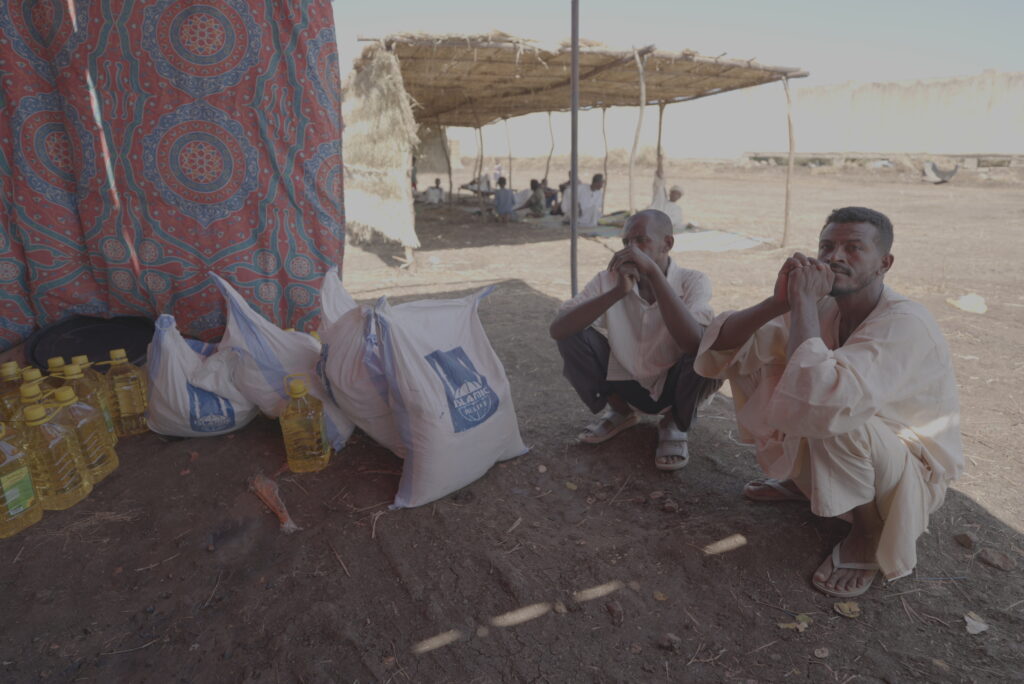
Why Islamic Relief stays and why it matters
Despite the dangers, Islamic Relief staff continue their work. For Mubarak, the reason is simple:
“The organisation has many services to offer, and this is what made us stay for a long time, regardless of the suffering.”
In places like West Kordofan and North Kordofan and central Darfur – now active war zones – Islamic Relief teams operate under extreme risk, ensuring that aid reaches those who need it most.
But as the war enters its third year, the world continues to ignore the crisis. Donor fatigue and competing global crises threaten to leave Sudan’s people forgotten.
We must not look away
Years of war have shattered Sudan. Families walk for days on foot to escape violence. Children go hungry. Hospitals without supplies turn away the sick and wounded.
Mubarak’s story, and Izzeldin’s sacrifice, are testaments to both the horrors of this war and the strength of those who refuse to give up.
“I am an example of colleagues who are affected by the war and witnessed these difficult times,” Mubarak says. “All Islamic Relief staff in Sudan have suffered and have stories that could be case studies.”
As we mark this grim anniversary, we must ask: Will the world continue to look away?
Islamic Relief remains on the frontlines, but we cannot do it alone. Sudan needs urgent funding, access for aid agencies, and, above all, a lasting peace.
The people of Sudan have endured enough. They deserve more than silence.
Islamic Relief has been working in Sudan since 1984, providing emergency relief, healthcare, food, and shelter to vulnerable communities. Despite the dangers, our teams remain committed to serving those in need.
Please support our life-saving work by donating to our International Emergency today.
